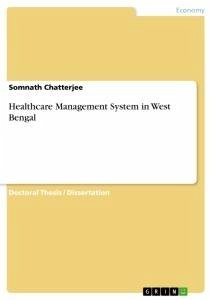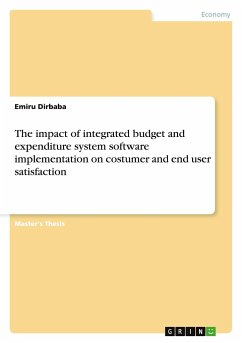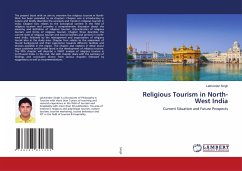Doctoral Thesis / Dissertation from the year 2015 in the subject Business economics - Business Management, Corporate Governance, grade: 2015, , language: English, abstract: This study seeks to obtain empirical answers to the following questions: (1) What is the level of outreach of healthcare institutions in the public sector vis-à-vis private sector across states of India, with a special emphasis on the state of West Bengal? (2) How can we measure public healthcare access in order to examine its variations across the states of India, districts of West Bengal and different blocks within Burdwan district? (3) Does there exist any linkage between public healthcare access and healthcare expenditure? (4) What is the level of efficiency of the different healthcare institutions in state government, private and public sector undertaking hospitals? (5) What are the important factors that can explain the variation in the level of efficiency across hospitals? (6) What are the crucial factors, influencing the efficiency of healthcare institution? (7) Do the patients differ in their perceptions on the different services offered by the healthcare providers? In the framework of human development, health is considered as an individual right, which is described "not merely the absence of illness but a complete state of physical, psychological and social well-being". Healthcare is indispensable not only to attain the demographic advantage by obtaining a strong and creative workforce and universal happiness but also to accomplish the purpose of population stabilization. In view of this backdrop, accessibility to suitable and significant healthcare service turns out to be a vital aspect in upgrading the excellence of human life, especially in the developing and under-developed countries. The healthcare and its reach are constantly an imperative issue of the social thinkers. In 1978, the Alma-Ata Declaration with the objective of "Health for All" and the subsequent declaration in 1998 as, "Health for All in the 21st Century" included "to attain health security for all, to achieve global health equity, to increase healthy life expectancy and to ensure access of essential healthcare of good quality for all". Thus, enormous magnitude is there to create health infrastructure in both qualitative and quantitative deliberation to provide healthcare facility throughout all corners of the country with an uncomplicated ease of access and affordability of common people of all income groupings; which would offer an improved health status and successive better standard of living.
Hinweis: Dieser Artikel kann nur an eine deutsche Lieferadresse ausgeliefert werden.
Hinweis: Dieser Artikel kann nur an eine deutsche Lieferadresse ausgeliefert werden.








